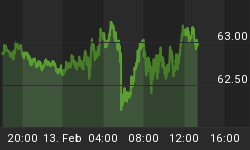Finding itself in dire straits, the government of Venezuela has done something completely unprecedented. As part of an attempt to staunch runaway inflation, it’s issued a new fiat currency dubbed the “sovereign bolivar” that will be backed by a cryptocurrency known as the “petro”.
Not to be confused with Signal Capital Management’s recently re-launched (and genuine) crypto the PetroDollar (XPD), Venezuela’s petro does not yet trade on standard crypto exchanges and the Venezuelan parliament says it’s an illegal attempt to mortgage the country’s oil reserves.
In February, Venezuelan President Maduro launched the petro as a last-ditch attempt to raise cash amid an economic meltdown and hyperinflation pegged at more than 40,000 percent and set to exceed a million percent by the end of the year, according to the IMF. The Bretton Woods institution has also projected an 18-percent contraction in the economy as oil production declines.
Each petro token will be backed by the nation’s oil reserves, with Maduro saying that 100 million petro tokens worth around $6 billion will be issued.
The tokens, however, are yet to start circulating and crypto rating site ICOindex.com has given the petro “scam status”. One petro will be equal to $60 or 3,600 sovereign bolivars. In effect, all the government has done is replace 100,000 old bolivars for one new bolivar and little else. Related: Money Talks As China Reacts To Taiwan’s Global Tour
With no policy change whatsoever, things will quickly revert to their old course after the excitement has faded.
Petro’s Initial Launch Underwhelms
When Maduro first unveiled the petro back in February, he made a bold claim on Twitter that the ICO had managed to raise $735 million, placing it behind only Telegram’s $850-million pre-sale. But so far, there has been no solid evidence to substantiate that claim.
In fact, evidence points to an ICO that didn’t quite go according to plan.
Leading up to the petro pre-sale, the Spanish-version whitepaper said that the crypto was to be coded as a smart contract--an ERC20 token on the Ethereum blockchain. However, that was not to be after Maduro unsuccessfully tried to pitch OPEC members forcing a change of tack. The Venezuelan president later tweeted that the petro was to be listed as an asset on the NEM blockchain and even updated the English-version whitepaper to reflect the change.
Funny thing is that both the ERC20 token and NEM mosaic continued to co-exist for quite some time. But the madness did not stop there …
PetroDollar (XPD) saw a massive near-100 percent pop after the “real” petro was launched. Other scams later popped up claiming to be the real thing, each with varying degrees of success. Meanwhile, the public had to sift through a maze of fake addresses and several un-related tokens.
That series of snafu-ridden events does not inspire much trust—something that’s especially critical for a commodity-backed token.
Related: Why The Crypto Market Has Lagged In 2018
Commodity-backed cryptos have failed to take off as expected, mainly due to trust issues. Venezuela might own the world’s largest oil reserves but nobody’s even sure whether the government will keep its word and actually maintain the necessary reserves to backstop the petro.
It’s an all-too familiar theme, with the USD-pegged tether a constant source of conspiracy theories because nobody is sure whether Tether Ltd actually maintains an amount of dollars that corresponds to tethers issued.
An accounting firm by the name Friedman LLP tried to establish a tether audit trail but that ended up getting nowhere. Other commodity-backed cryptos including BitUSD and NuBit have also failed to gain traction.
It’s going to be interesting to see if the public will finally accept the first government-issued cryptocurrency. But as things stand right now the odds appears stacked against Venezuela’s petro.
By Alex Kimani for Safehaven.com
More Top Reads From Safehaven.com

















